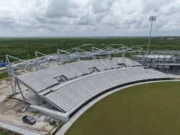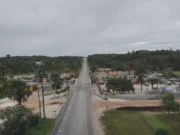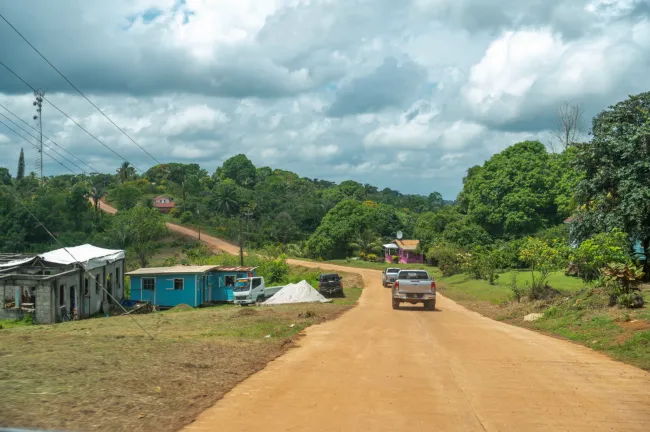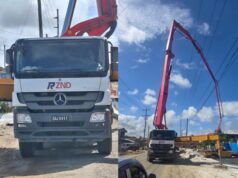The Government of Guyana has approached the World Bank for US$173 million to improve connectivity with Brazil and Suriname as well as key in-country road networks.
The request for road upgrades to be financed by the World Bank is recognized as a regional priority through the joint declaration by the presidents of Guyana, Brazil and Suriname at the 46th Regular Meeting of the Conference of Heads of Government of CARICOM.
The proposed Integrated Transport Corridors Project will provide climate resilient and safe transport connectivity in the north-eastern part of Guyana, financing the upgrade of selected road corridors/sections, and strengthening the Guyana government’s institutional capacity in the road transport sector with consideration of climate change, road safety, citizen engagement and gender.
Notably, the project will support regional integration, inland and coastal connectivity, and expand the agricultural sector for food security by improving safe and resilient connectivity. The roads selected for improvement and rehabilitation works will be based on a set of criteria agreed and finalized with Guyana during the preparation phase, and will be in the north-eastern region of Guyana (Regions 3, 4, 5 and 6).
According to project documents, the main criteria will be enhancement of regional and in-country connectivity and trade; and will take into consideration (i) climate vulnerability, (ii) road crash risk, (iii) access to basic services and markets. The project will also provide Guyanese authorities with a complete connectivity-informed institutional framework to select interventions in selected areas and prioritize its budget according to sustainable development criteria including setting up a citizen consultation mechanism.
The GoG has already pre-identified potential road corridors to be financed under the project that will be prioritized during project preparation/implementation. These include a 40km corridor from New Amsterdam to Mara and an 8km section of the Corentyne corridor from Moleson Creek to El Dorado, where the bridge to Suriname is expected to start, with preliminary studies already initiated.
Component 1: Climate Resilient and Safe Road Corridors Improvement has an estimated cost of US$155 million. This component will focus on the improvement (rehabilitation and upgrade) of selected road corridors. The works will include climate-resilient improvements, road safety interventions and will focus on promoting active mobility along the corridors with dedicated infrastructure for pedestrians, bicycles, and public transport.
Additionally, this component will incorporate information and communications technology (ICT) pilots and complementary community investments for increased and inclusive job creation, access to social services and enhanced economic opportunities targeting women.
Component 2: Technical Assistance for Strengthening Road Asset and Safety Management, has an estimated cost of US$3 million. It will address, among other things, a national level road network safety assessment. Since speeding was identified as one of the main risk factors on Guyana’s road network, an assessment of the speed limits in place will be undertaken using the latest global guidance available, together with a set of recommendations for safe speed limits and complementary measures in terms of legislation, road infrastructure, and enforcement. Complementary capacity building will be provided while undertaking the assessments. This funding will also support a study on reducing road crash exposure at the national level, by shifting from car dependency to public transport and active transport mobility.
Component 3: Project Management and Capacity Building, will cost an estimated US$15 million. It will support the establishment of the Project Implementing Unit (PIU), including capacity building to ensure fiduciary and safeguards compliance, monitoring and evaluation, citizen engagement. The same component will finance training and technical advisors on key project implementation issues including contract design and management.
Overall, the project will cost a total of US$173 million with the estimated approval date by February 28, 2025. Once approved, it will be implemented by Guyana’s Ministry of Public Works.









